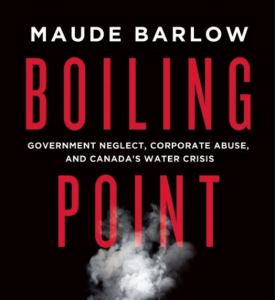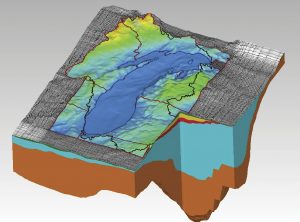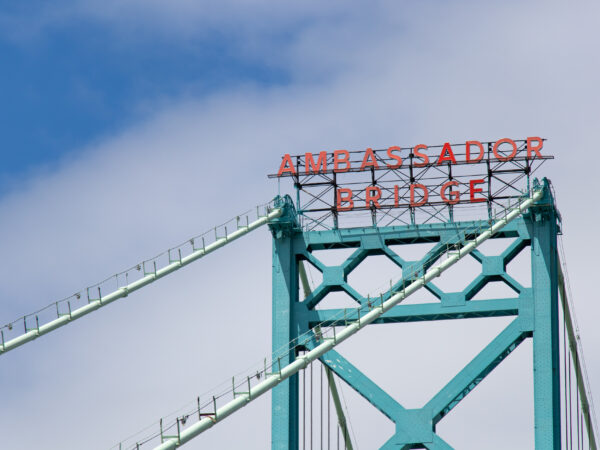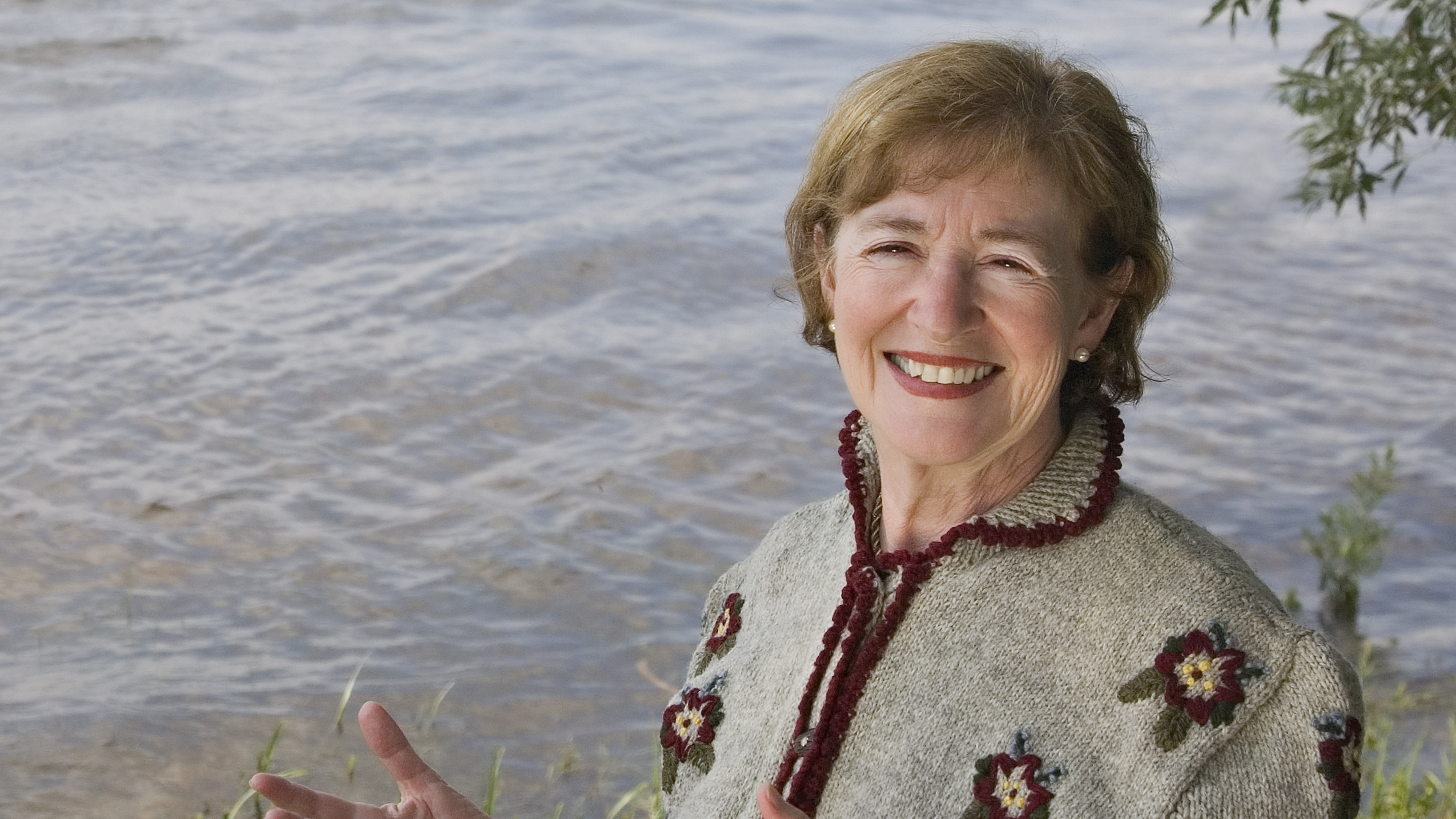
In the universe of water and social justice activism, there are few names more prominent than Canada’s Maude Barlow.
Barlow has a lengthy list of awards and honorary degrees but is best known in her 34-year activist career for her work travelling the world advocating for access to water as a human right. She advised the United Nations in that capacity and was recognized by the U.N. in 2010.

Maude Barlow, Honorary Chairperson, Council of Canadians, Courtesy of Council of Canadians
Barlow began her career co-founding the Council of Canadians in 1985. Today it claims to be the leading social and environmental justice group in Canada.
Barlow has stepped back from her leadership role with the group but has an honorary status with it and continues to work on water issues that she said are “close to her heart.”
“There’s still more to do,” she said.
Her current focus is on the increasing threat to drinking water quality, water shutoffs to the economically disadvantaged, privatization of public water systems and plastic pollution to the Great Lakes.
“They are among the things that keep me awake at night,” Barlow said.
Barlow talked with Great Lakes Now on the release of her 19th book, “Whose Water Is It, Anyway? Taking Water Protection into Public Hands.”
“This book is about hope,” Barlow said, in reference to environmental activists often being painted with a negative brush for always being against something.
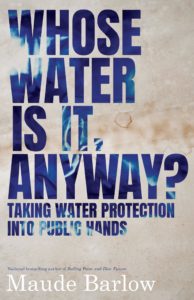
Whose water is it, anayway?
Being unrelenting in her position is not her style, Barlow said.
“I do not see myself as an ideologue. I am a pragmatist who is always looking for a practical path forward,” she said.
The hope in the book comes from its focus on grassroots activism, when she sees “everyday people defending the water resources of their communities,” according to Barlow.
She cited grassroots activists in Detroit taking ownership of the 2010 United Nations resolution that access to water is a human right when rallying against water shutoffs for those who can’t afford to pay their bills.
She pointed to citizens telling municipal leaders not to privatize the public water system which, Barlow said, leads to increased rates and may result in water companies cutting corners on water quality protections.
But relying on hope doesn’t mean she’s naive about the challenges faced by grassroots activists in local communities. Activists will still need strong laws and good leaders to protect ecosystems and people, as water crises will not be averted by hope alone, according to Barlow.

Former Prime Minister Stephen Harper, Photo by Kashmera via wikimedia cc 2.0
In Canada, former Prime Minister Stephen Harper “was determined to impose water privatization on Canadians,” Barlow said. “Getting municipalities to take a stand to protect public water management was a way of fighting back.”
But things change and “we are much more likely to be heard by our current federal government of Prime Minister Justin Trudeau,” Barlow said, adding that Trudeau has given his environment minister, Catherine McKenna, a high-profile role.
In the U.S., Barlow decried the Trump administration’s environmental record, including the recent rollback of the Obama-era Clean Water Rule. But she sees hope in newly-elected officials in Michigan and Chicago.
In her election campaign, Michigan Gov. Gretchen Whitmer articulated an “aggressive water agenda,” Barlow said. In Chicago, new Mayor Lori Lightfoot ended water shutoffs by issuing an executive order in her first days in office with the promise of a water affordability plan to follow.
Barlow cautioned that there will be barriers for both leaders in implementing their programs and it’s important for the public to focus on their intentions and to “make noise at the local level. There needs to be pressure from the bottom up” for these officials to be successful, Barlow said.
The connection between water commodification and pollution
Barlow has long railed against bottled water as “another source of water commodification” that allows it to be bought and sold by private interests.
She’s now concerned about the plastic pollution it produces.
“The issue of plastics pollution in the Great Lakes is a good example of education needed in a hurry,” Barlow said.
“We somehow think we who live on or near these mighty lakes are immune to the world water crisis,” Barlow said. She called our attitude toward plastics “careless” and that “our addiction to bottled water has come home to haunt us.”
Barlow said phasing out bottled water won’t eliminate plastic pollution but it will address “a big part of it and is one that is easily done.”
Environmental groups don’t move in lockstep on the bottled water issue, according to Barlow.
“When most mainstream environmental groups speak out on bottled water, it is to denounce the plastics pollution connected to this industry, which is of course true,” she said.
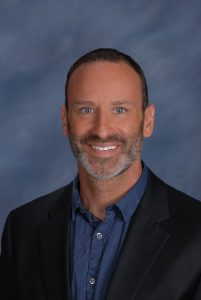
Noah D. Hall Associate Professor of Law, Photo by Wayne State University
But most mainstream groups haven’t made the link between water becoming a commodity and pollution, she said.
“When corporations control water, we lose public oversight of water. When we lose public oversight and democratic control of our water supplies and water policies, we abandon water protection to private interests for whom the bottom line is paramount,” Barlow said.
Barlow cited Traverse City-based For Love of Water and Food and Water Watch as two groups who understand the consequences of water privatization and work to minimize them. Barlow is on the board of directors of Food and Water Watch.
“Maude Barlow has been sounding the alarm on water privatization for years, and she’s right, while mainstream American environmental leaders have ignored her,” said Noah Hall, Wayne State University professor and water law expert.
“And we now live in a world of bottled water for the haves and water shutoffs for the have nots,” Hall said.
Nestle bottles are ‘100 percent recyclable’
“Our bottles are 100% recyclable,” Nestle Waters Canada said in a statement attributed to a company spokesperson via a Michigan agency.
Nestle said “95% of Ontario households have access to Blue Box curbside collection services,” and producers like Nestle are responsible for 50 percent of the cost of the collection program, and that will increase to 100 percent by 2025.
“The Blue Box program has proven to be a significant success,” Nestle Waters Canada said. The company also continues to work on recycling programs in public spaces.
Nestle said it has tested plastic water bottles for microplastics since 2015 and has only detected trace levels.
Nestle is the largest bottled water company in the world, according to Barlow, and it did not respond to a request to comment on Barlow’s bottled water campaigns in Canada like the pledge drive to boycott Nestle bottled water.
Featured Image: Maude Barlow, Honorary Chairperson, Council of Canadians, Courtesy of Council of Canadians


